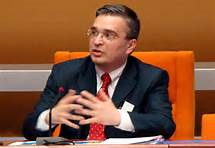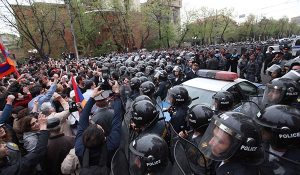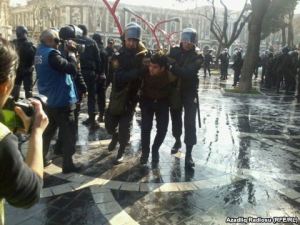COMMENTARY
The positive assessment of the pre-election mission of the US Government that visited Tbilisi over the last days sums up well the current political atmosphere in Tbilisi. The stress that marked the years of the Saakashvili administration with its heavy handed police tactics and massive surveillance has gone, and everybody can notice this. This has greatly contributed to creating the right conditions in which Georgians will choose their next President on 27 October. Yet there is no room for complacency. Georgia is not just Tbilisi and outside the capital old habits die hard.
Two particular concerns need to be highlighted. The first is connected with disruptions to the campaign activities of the candidate of the United National Movement, David Bakradze. Appearance of the odd clown at election gatherings is a known and accepted ploy in elections in western countries. Indeed many a British Prime Minister had to endure the presence of one during their campaigning. But there is a fine line between making a point and disrupting a political event, with or without violence. This line must not be crossed and Georgian law enforcement bodies must see to that. Bakradze is in this election the underdog and his rights need to be protected, fully. The second issue which was correctly also raised by the US delegation is that related to National Minorities. Here the Georgian Dream government has been less than re-assuring in its conduct nationally, but even more so in terms of the attitude of its proxies in the regions. Georgia is not simply a country of ethnic Georgians – it is a multi-ethnic and multi-faith country, and has been for many centuries. Those trying to give an impression otherwise are wrong. This is an issue with importance way beyond the current Presidential election, but the election will provide another test as to how Georgia is treating its national minorities. Here Ivanishvili and co are yet to prove themselves.
This commentary was prepared by the editorial team of CEW.
 The case of Azerbaijani political activist Ilgar Mammedov is fast becoming a test-case of the resilience and integrity of those European institutions that are meant to be the guardians of human rights on the continent. Mammedov was arrested earlier this year after visiting the town of Ismaili at a time when rioting was taking place. Mammedov is accused of inciting the riot.
The case of Azerbaijani political activist Ilgar Mammedov is fast becoming a test-case of the resilience and integrity of those European institutions that are meant to be the guardians of human rights on the continent. Mammedov was arrested earlier this year after visiting the town of Ismaili at a time when rioting was taking place. Mammedov is accused of inciting the riot.
 COMMENTARY:
COMMENTARY:
